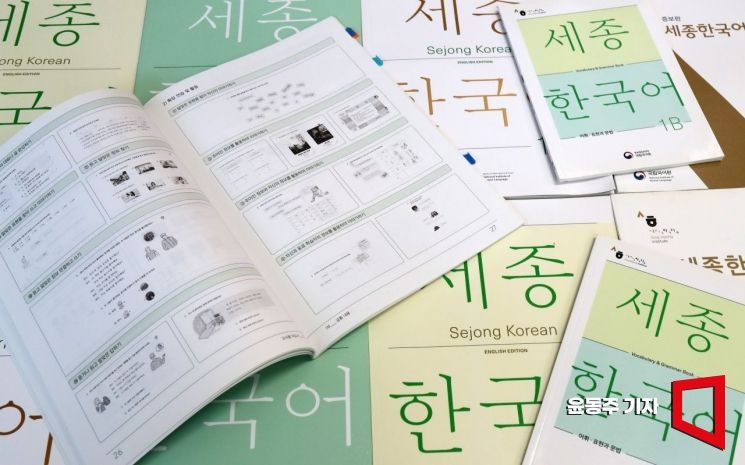
Why the Transition of TOPIK Matters for Foreign Residents and Learners of Korean
Hello, dear readers! If you're navigating life in Korea or considering learning the language, this recent change regarding the Test of Proficiency in Korean (TOPIK) won’t just affect students, but anyone engaged with Korean culture, language, and even work. Understanding how this shift impacts you is crucial.
The TOPIK has served as a benchmark for assessing the Korean language proficiency of foreign nationals for over 28 years. Recently, it has been announced that the administration of TOPIK will transition from governmental control to a private consortium. This is a significant shift that raises questions about accessibility, management, and the overall landscape of language learning in Korea—especially for foreigners who are keen on mastering the language.
🌏 What's happening in Korea? (Quick overview)
The National Institute for International Education announced that the responsibility for TOPIK will be transferred to a consortium led by Naver. This decision indicates a shift toward privatization in a sector traditionally managed by public institutions, raising concerns and excitement alike.
💡 Why this matters for foreigners? (Impact analysis)
With the move to private companies, there could be a shift in how the exam is administered and evaluated. For expats, this means that accessibility could change; potentially leading to increased costs or changes in exam schedules. It’s essential to keep an eye on how these developments could affect your plans or opportunities in furthering your Korean language skills.
📌 How to take advantage of this? (Step-by-step guide, if applicable)
If you're preparing for the TOPIK, staying informed about the changes is vital. Here are steps to adapt:
- Monitor official announcements regarding the new testing structure.
- Engage with local language institutes to pivot your study methods if necessary.
- Consider networking with other learners to share insights and prepare together.
- Utilize technology and online resources from private companies as they may offer innovative study tools.
🇰🇷 Understanding Korea's system (Cultural & bureaucratic insights)
This transition from public to private control offers a glimpse into Korea's evolving education landscape. Many countries administer their language proficiency tests through non-profit organizations to maintain standards. This shift could challenge that norm as education transforms in the face of rapid globalization.
🌟 Tips for foreigners living in Korea
Foreigners residing in Korea should leverage the growing technology and resources from companies involved in language education. Take advantage of language exchange meetups, and don't hesitate to explore online language courses that might integrate new methodologies following this transition.
🔮 What's next? (Future trends & additional insights)
Looking ahead, it's important to consider how the global interest in Korean language and culture could impact this transition. With organizations becoming more involved, new opportunities for learning—through innovative platforms—are likely to emerge, creating a robust ecosystem for students.
🇰🇷 Learn Korean from this Article!
Improve your Korean language skills with these key phrases from the article:
🔤 Korean Phrase 1: "한국어능력시험"
🔤 Pronunciation: Hanguk-eo Neungryeok Siheom
🔤 English Translation: "Korean Proficiency Test"
🔤 Usage Tip: Use this when discussing language abilities among friends or in educational settings.
🔤 Korean Phrase 2: "민간기업"
🔤 Pronunciation: Mingan Giyeop
🔤 English Translation: "Private company"
🔤 Usage Tip: This is used when referring to businesses operating without government control, especially in discussions about the economy.
🔤 Korean Phrase 3: "한국어 배우기"
🔤 Pronunciation: Hanguk-eo Baeugi
🔤 English Translation: "Learning Korean"
🔤 Usage Tip: A helpful phrase to express your intent to learn the language, particularly in a social context or when seeking resources.
🙋 Essential FAQs for Foreigners
Can foreigners participate or apply?
Yes, the TOPIK is available for all foreigners wishing to assess their Korean language skills.
Do I need to know Korean for this?
While prior knowledge of Korean will be beneficial for preparing for the exam, resources are available to help learners at all levels.
Where can I find official details?
Keep an eye on the National Institute for International Education's website and trusted educational institutions for the latest updates about the exam.
In conclusion, the future of the TOPIK will evolve significantly with this transition to private sector control. It's a moment that invites engagement and adaptability. Keep learning and don’t hesitate to reach out to the community for support!
📱 Get the BeraKorean App & Stay Updated!
Want to improve your Korean skills and stay informed about life in Korea? Download the BeraKorean app for exclusive content:
- 📱 Android: Download on Google Play
- 🍎 iOS: Download on App Store
📺 Follow us on BeraKorean YouTube for Korean lifestyle & language content!
🌏 Visit berakorean.com for more updates, news, and insights on living in Korea.
🔗 Read the Original Korean Article
Want to dive deeper? Check out the original article here:
📢 Tags
#KoreaNews #LifeInKorea #ForeignersInKorea #KoreaOpportunities #KoreaLiving #LearnKorean #KoreanLanguage